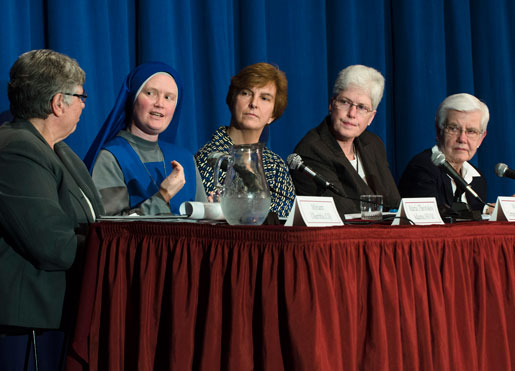Photo by Chris TaggartMonsignor Thomas J. Shelley, Ph.D., a professor emeritus of theology, Fordham alumnus, and author of the definitive history of the University’s first 162 years, died on Nov. 14 at Nassau University Medical Center. He was 85, and the cause was cardiac arrest.
“Monsignor Shelley was a beloved and important member of the Fordham community. I was personally so grateful for his history of the University, which will forever help me continue the work of my predecessors,” said Tania Tetlow, president of Fordham. “My heart goes out to Father McShane and all of Monsignor Shelley’s family and friends.”
Monsignor Shelley’s role at Fordham went beyond his official title, thanks to the monumental task he took on in telling the University’s story. His book Fordham, A History of the Jesuit University of New York: 1841–2003 (Fordham University Press, 2016), is seen by many as the go-to source on matters of Fordham’s founding and first 175 years.
He was also a first cousin of Joseph M. McShane., S.J., president emeritus of Fordham, who called him a “master of tale and story” and a compassionate priest whose serious scholarship was balanced by an avuncular personality that endeared him to students, and a concern for the poor.
“You see in the history of the University, the history of the archdiocese, and in the parish histories he wrote, the people that he was most drawn to were people who were most authentic, who were true to mission, who watched out for the poor, were not flatterers, nor were they flattered,” he said.
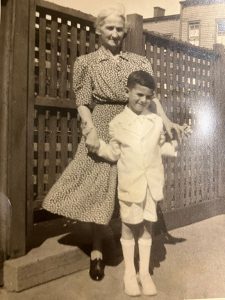
“He was drawn to the hardworking people in the parishes, hardworking priests who didn’t spend a lot of time in the rectory but were out walking through the parish, seeing what was going on and so on.”
Although Monsignor Shelley was 12 years older than Father McShane and lived four miles away in the neighborhood of Melrose, he loomed large in the life of the McShane family. He was the first on the Shelley side of the family to attend college and was among the first to join “the family business,” said Father McShane, who stepped down as Fordham’s president in June.
When then-Deacon Shelley was assigned to Midnight Mass at Our Lady of Mount Carmel on a snowy Christmas Eve, Father McShane recalled, it was a big deal when he stayed the night across the street with his grandmother rather than return to the seminary.
“I can remember his ordination, I can remember his first Mass, and I can remember the dinner following his first Mass, which was at the Concourse Plaza Hotel,” he said.
“I also remember the menu at that dinner. So that will tell you something about the place he had in our family.”
Thomas Joseph Shelley was born in 1937 to Thomas Shelley and Helen Walsh Shelley. He was the oldest of three children; his twin sisters Helen and Mary were born seven years later. He attended Cathedral College high school in Manhattan received a B.A. in philosophy in 1958 and an M.A. in theology in 1962 from St. Joseph’s Seminary and College, and was ordained a priest in 1962. He served as a parish priest for the Saint Thomas More Church, and after retiring, he served at Sunday Masses at Church of the Ascension, both in Manhattan. In 1966, he earned an M.A. in history from Fordham’s Graduate School of Arts and Sciences. He earned a doctorate in church history at Catholic University in 1987.
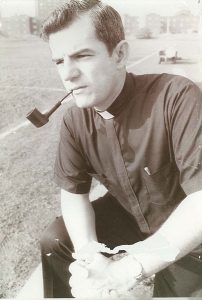
After 30 years of teaching history and religion at both the high school and seminary levels—including Stepinac High School, Cardinal Spellman High School, and Cathedral College—he joined Fordham’s theology department in 1996. He taught courses such as 19th-Century Catholicism, The Church in Controversy, and Faith and Critical Reason for 16 years, and in 2012, he retired, and was awarded the title of Professor Emeritus at Fordham.
He specialized in 19th- and 20th-century American Catholicism, particularly in New York City. In 1993, he published Dunwoodie: The history of St. Joseph’s Seminary, Yonkers, New York (Christian Classics), and in 2007, as a part of the Archdiocese of New York’s commemoration of its 200th anniversary, he was commissioned to write The Bicentennial History of the Archdiocese of New York: 1808-2008. (Editions Du Signe, 2007).
He was also a prolific contributor to America, which honored him with a tribute on Nov. 15.
In 2008, Father McShane asked him to write a history of the University from its founding to 2003, the year that Father McShane succeeded Joseph A. O’Hare, S.J. as president.
Father McShane said he knew from Monsignor Shelley’s prior work that he could trust him to do a “warts and all” exploration of the University.
“Tom took his work very seriously, he took his students very seriously, he took his colleagues very seriously. He took being a priest very seriously. The only thing he didn’t take seriously was himself,” he said.
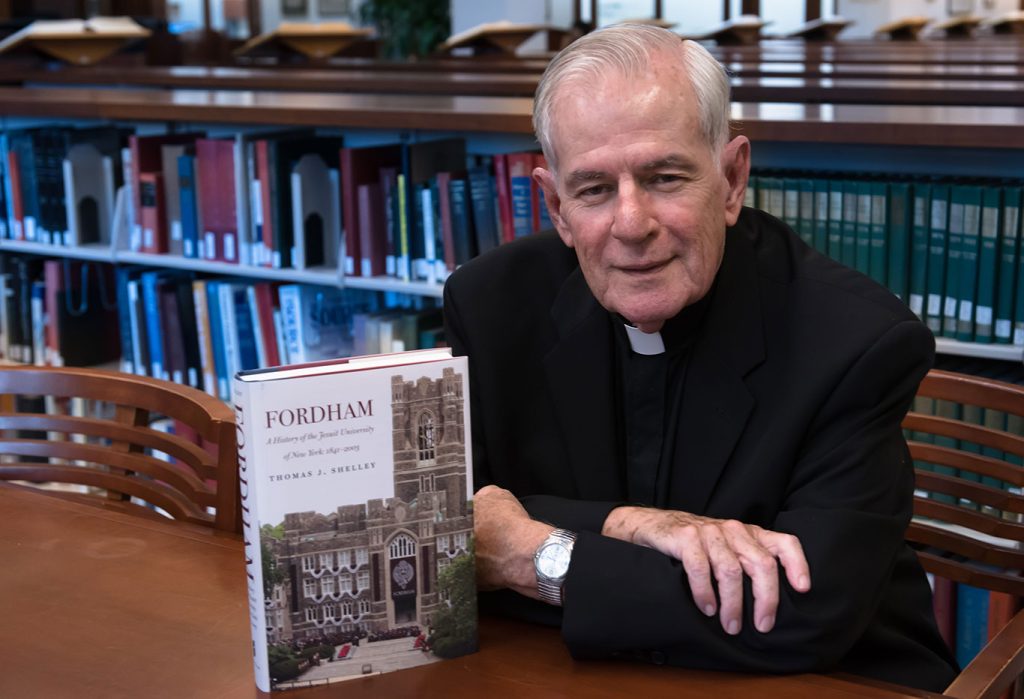
Photo by Chris Taggart
Eight years later, Monsignor Shelley completed the 536-page history, complete with black and white and color photos, just in time for the University’s 175th-anniversary celebration. Among the conclusions he came to was that Fordham Founder Archbishop John Hughes “anticipated the work of the Second Vatican Council by a whole century.”
In 2016, he spoke to Fordham Magazine about taking on such a huge task.
“The Jesuits made my work easy because they carefully preserved so much of Fordham’s history in their archives, both here in New York City and also in Rome. Prior to 1907, Fordham (which was still called St. John’s College at the time) is the story of a small liberal arts college in the rural Bronx. After 1907, with the establishment of the first graduate schools (and the transition from college to university), the plot thickens. Each of the graduate schools has its own distinct identity and history, so the story becomes more complicated,” he said.
Monsignor Shelley was an active part of the 175th-anniversary celebration, delivering the homily at a Mass at St. Patrick’s Cathedral and participating in a panel discussion about the University’s history. Although he himself was not a Jesuit, he attributed the University’s success, even through its roughest years, to the Society of Jesus.
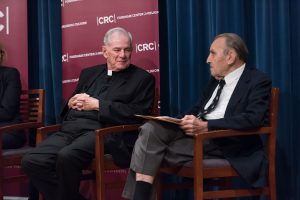
Photo by Leo Sorel
“The popularity of Jesuit education for the last four centuries has been due in large measure to one factor: the fact that it’s rooted in the Christian humanism of the Renaissance and the positive aspects of the Catholic reformation,” he said.
Shelley continued to work on behalf of the University and the Church. In 2019, he published Upper West Side Catholics: Liberal Catholicism in a Conservative Archdiocese (Fordham University Press), and last April he delivered the homily at a Mass celebrating the opening of the Joseph M. McShane S.J. Campus Center. In June, at Father McShane’s request, he completed a final chapter of Fordham’s history that tackles Father McShane’s own time in office. Next spring, his book John Tracy Ellis: An American Catholic Reformer will be published by Catholic University Press.
Elizabeth Johnson, C.S.J., distinguished professor of theology, said Monsignor Shelley’s focus on “smart institutional history” was invaluable.
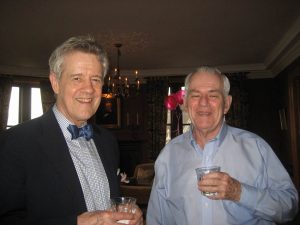
Photo courtesy of Elizabeth Johnson
In his history of the Archdiocese of New York, for example, Johnson noted that Monsignor Shelley dispelled the notion that the church was always associated with immigrants. In fact, in the years before the American Revolution, it was a church of the elite, dominated by figures such as Cecil Calvert, 2nd Baron of Baltimore, an English nobleman who was the first proprietor of the Province of Maryland.
“He kept bringing up these sorts of discoveries and insights that would otherwise go untold. It wasn’t hagiography. It was very clear-eyed,” she said.
That volume also brought to mind one of Johnson’s favorite memories of Monsignor Shelley. While working in Fordham’s archives, he discovered correspondence between Archbishop Hughes and nuns working in Greenwich Village. They had been caring for non-Catholics, and Archbishop Hughes demanded they cease and desist. They informed him that after reading the Gospels, they concluded that Jesus would side with them, not him.
“He said, ‘What do you think?’ I said ‘Tom, this has to go into the book. And it did!’ Johnson said.
“He had the eye for what was really going on, and his deep allegiance was always to Christ and the gospels. I could see someone else writing a history of the Archdiocese who would just want to bury that.”
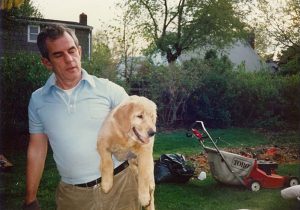
Photo courtesy of Mary Shelley
Christine Firer Hinze, Ph.D. chair of the theology department, said that it was beneficial to the theology department to have a diocesan priest on staff who taught seminarians, as he did at St. Joseph’s Seminary, where he was also named professor emeritus.
“He had his foot in both worlds, and that was incredibly helpful and enriching for us,” she said.
“The Archdiocese of New York is our home, but it can feel a little distant because of the stand-alone nature of a university.”
When the pandemic hit, Shelley moved back to the house in Long Island that his parents moved to in 1956, to be with his surviving sister, Mary Shelley. She said he was worried about her because of the Covid tally on Long Island and wanted to ensure she was not alone.
It was a blessing to have him back during that time, said Mary just after Monsignor Shelley died. She noted that as a night owl, he took full advantage of an open schedule, staying up until 3 a.m. to write his last book. He knew when he was an altar boy that he wanted to be a priest, she said. In June, he celebrated his 60th anniversary as a priest.
“His heart and soul, body and mind, were focused on the priesthood,” she said.
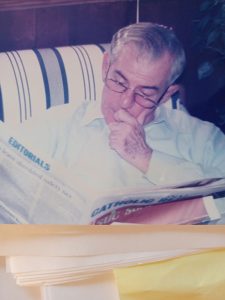
Photo courtesy of Mary Shelley
In addition to his being a lifelong Montreal Canadians fan and a lover of animals, Mary said she would always remember her brother for his compassion. When Helen died in 2013, he helped her with her grief, as he had many times before.
“We lost our parents very young, and I asked him why it hurts so much. He said ‘That’s the price you pay for love,’ and it’s true,” she said.
“He would help anyone, and he was honest. If things were bad, he would tell you. He was a composite of everything you’d want to have in a person.”
Father McShane said that several recent moments will stand out to him, including the many family funerals they were both called to serve at. At one point, Monsignor Shelley offered to take on the job of preaching, while letting Father McShane be the celebrant. It’s a more difficult job, but he offered to do it, because he had more time to write. On Friday, Father McShane will be the one at the pulpit, at his cousins’ funeral, and he said he’ll always be grateful for the way Monsignor Shelley helped him with the grief he felt at his mother’s funeral.
“When we were lining up for the procession, he walked by, patted me on the shoulder, and said, ‘You’ll be okay. You’ll be okay.’ And I looked at him and said, ‘Are you sure?’ He said, ‘I’m sure you’ll be just fine.’”
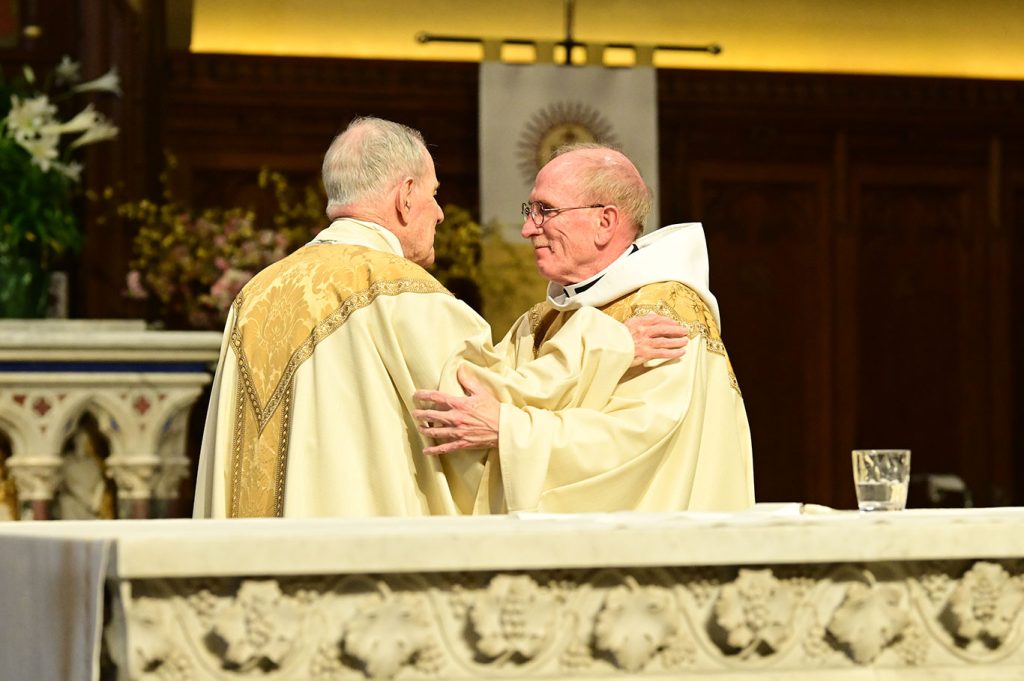
Photo by Chris Taggart
Shelley is survived by his sister Mary Shelley. He is preceded in death by his parents and his sister Helen.
A wake will be held Thursday, Nov 18, from 1 to 3 p.m. at the Main Chapel of the John Cardinal O’Connor Pavilion, 5655 Arlington Avenue, Riverdale, N.Y.
A funeral will be held at 10 a.m. on Friday, Nov. 18, at Church of the Ascension, 221 W 107th St. A wake will also be held in the church from 9 a.m. to 10 a.m. before the funeral.
Notes of condolences can be sent to Mary Shelley at 2408 Eighth Street, East Meadow, NY 11554.
]]>That thread of connection didn’t stop unspooling after four years, though: When Spiro returned to the D.C. area after graduating from Fordham College at Rose Hill in 2007, she joined the Fordham Alumni Chapter of Washington, D.C., and that ultimately led her to her first job, as manager of information services with the Association of Jesuit Colleges and Universities (AJCU).
Today, more than 10 years later, she’s not only the vice president of communications at AJCU, which comprises all 27 Jesuit colleges and universities in the U.S., but also president of the Fordham alumni chapter that helped jumpstart her career. And now, as always, her focus is on helping fellow Rams connect with each other.
This month, the D.C. chapter is hosting two events: an outing to a Washington Spirit soccer game on September 17 and a September 21 reception welcoming Fordham’s new president, Tania Tetlow, as part of her tour to meet with alumni throughout the U.S. and abroad.
Finding Fordham—and Herself
Each year, Spiro’s high school welcomed back graduates from the previous year, inviting them to share experiences from their first semester at college with current students. It was during this assembly that she heard from a former theater acquaintance about Fordham and realized that it ticked her college checklist boxes.
“I had applied to, I think, about seven other schools besides Fordham,” Spiro said. “But the first time that I went there in the fall of my senior year with my dad and my brother, it was really just love at first sight.” (Spiro’s brother, John A. Howes Jr., also became a Ram, graduating from Fordham College at Rose Hill in 2009.)
A communications and media studies major, Spiro made the most of her time on campus, having grown up being encouraged by her parents to get involved “not just in extracurriculars or hobbies that were passions … but also through service, too,” she said.
In addition to being a part of the Fordham Club, a combination honor society, advisory group, and fraternity; and a tour guide with the Rose Hill Society, Spiro was able to explore one of her passions: singing. She was a member of the University Choir for four years and vice president of the choir her senior year. She performed with the choir at Carnegie Hall during her first year and went on a singing trip through Spain the following summer.
Amid her classes, extracurriculars, and excursions, though, Spiro said the most important thing Fordham taught her was how to find herself—and her place in the world.
“In those formative years between 18 and 22, when you’re trying to figure out your place in the world and how your talents can really contribute and how you can make a positive contribution—I think that Fordham really helped me figure that out and navigate the next chapter in my life,” she said.
Sweet Symbiosis: The AJCU and the Fordham Alumni Chapter of D.C.
Since accepting that first position at AJCU in 2007, Spiro has served as the organization’s director of communications and, since June 2020, vice president of communications. She joined the Fordham alumni chapter’s board at roughly the same time, serving as president for almost a decade now. While the two roles may not seem intertwined from the outside, to Spiro, her work at each organization informs and benefits the other, with collaboration and teamwork underlining it all.
“The work that I do with the alumni chapter overlaps and has helped strengthen my work when it comes to alumni relations at AJCU,” she said. “We all want to achieve the same goal,” bringing people together for mutual benefits.
On the AJCU side, one way she’s done that is by advocating the sharing of resources and a sense of pride among Jesuit colleges and universities. Spiro was behind the #JesuitEducated campaign when Pope Francis, the first Jesuit priest to be elected pope, came to the United States in 2015. She and her collaborators used a tagline, “Transformational leaders are Jesuit educated,” as the basis for a marketing campaign. They wanted to highlight that more than just preparing students to get a job, Jesuit colleges and universities prepare students for careers of impact by teaching them how to think, dig deep, and seek a greater purpose.
And on the Fordham side, the chapter supports the Alumni Chapter of Washington, D.C., Endowed Scholarship, which helps make it possible for more high-achieving students from the Washington, D.C., area to pursue full-time undergraduate study at Fordham.
A Balancing Act
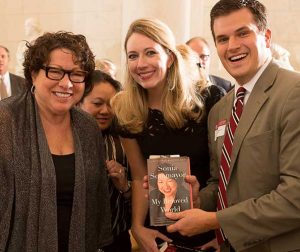
Heading up communications for a national association is a high-profile, demanding job, but Spiro said one of the things she loves about working at the AJCU is the work-life balance—which for her has meant the ability to pursue graduate study at Johns Hopkins University, where she earned a master’s degree in communications in 2012, and to start a family. She married Peter Spiro in 2017, and they now have a 9-month-old daughter, Holly.
“Even before becoming a mom, I was always afforded the opportunity to have a really good work-life balance,” she said. “Don’t get me wrong, it’s a busy job, but I’ve been able to do other things along the sides,” such as accept gigs as a freelance singer.
She’s performed the national anthem at various Jesuit colleges and universities, including Creighton, Gonzaga, and even Fordham before the Homecoming game in 2015. Lately, however, Spiro’s performances are tailored for an audience of one: She performs The Sound of Music’s “Do Re Mi,” theatrical hand signals and all, for her infant daughter, Holly.
Over the years, she said she’s been able to commit her time to a number of activities and organizations close to her heart, from handling media relations for a major North American Lithuanian folk-dance festival in 2016—her mother’s family is Lithuanian—to singing in a professional choir for a year, requiring her to sing for 10 Masses between Palm Sunday and Easter Sunday.
“I was able to do that because I had a very supportive boss who understood that this was a passion of mine,” she said. “And I have a piano in my office, and so as long as I practice before work and after work and got my work done, I was able to do that as well.”
The Next Chapter
Though she’ll be stepping down from her role as leader of Fordham’s Washington, D.C., alumni chapter at the end of the academic year, she’s “proud of the way that we’ve been able to continue reaching alumni where they are and producing a variety of events to fit all of the needs in all of the different stages of life”—whether that’s through a baseball game outing, a happy hour, or a service project.
Spiro has had some “really extraordinary moments” as president, from dining at the Supreme Court in 2015 when the chapter gave the Brien McMahon Memorial Award for the Distinguished Public Service to Justice Sonia Sotomayor to simply rallying around one another during the pandemic.
“I just feel so strongly connected to this school,” she said, thinking about the University’s effect on her life to date. “And every time that I return there, it just feels like a home away from home. Fordham really helped me to just figure out who I was and who I was going [to be].”
Fordham Five (Plus One)
What are you most passionate about?
My family and friends, music—I play the piano and have a side career as a singer— writing, cooking, reading, spending time outdoors, and traveling. And, of course, Jesuit higher education!
What’s the best piece of advice you’ve ever received?
Now that I’m a mom, I often reflect on two recent pieces of advice from both of my parents. From my dad: “The most important thing you can do for your children is to smile at them.” From my mom: “Always be confident in what you are doing as a parent.” I’m very grateful to have my parents living nearby, and for the many ways they help my husband and me with our daughter!
What’s your favorite place in New York City? In the world?
I actually never visited it until after graduating from Fordham, but the Brooklyn Bridge has become my favorite New York landmark in recent years. In a similar vein, the Eiffel Tower in Paris is one of my favorite places in the world; both are such staggering feats of engineering, architecture, and design that never fail to astound me!
Name a book that has had a lasting influence on you.
I was such a bookworm growing up, but kind of lost my love of reading for pleasure in my 20s, due to work, graduate school, etc. So, in my 30s, A Gentleman in Moscow was the book that helped me to get back into reading for pleasure and even start a virtual book club with family and friends that is still thriving, even as we (hopefully!) get out of the pandemic.
Who is the Fordham grad or professor you admire(d) most?
There are four professors—several of whom I have been fortunate to keep in touch with over the years—who were particularly helpful in teaching me how to become a stronger writer and more engaged student of the world: Christine Firer Hinze, James Kim, James van Oosting, and Andrew Tumminia. I also want to give a special shout-out to Rob Minotti, who conducted the University Choir during my four years at Fordham and helped me to grow as a singer and performer.
What are you optimistic about?
My daughter! Holly was born in November 2021, right between the Delta and Omicron phases of the pandemic. I’m convinced that she (and all other pandemic babies) is going to save the world. If they can make it through this crazy time in our history, they can make it through anything.
“Barbara has quietly been a groundbreaking figure in the field of Catholic feminist ethics. In a non-flashy way, she has been ahead of the curve on so many issues since the 1980s,” said Christine Firer Hinze, Ph.D., chair and professor in the theology department. “This lectureship refracts much of the work that Barbara has done over the years and ensures that light will continue to shine on those issues, especially at Fordham.”
This past January, Andolsen made a bequest that will support an endowed fund for the Barbara Hilkert Andolsen Memorial Lectureship. Every year, Fordham’s theology department will host a prestigious scholar to speak on a topic related to economic, racial, or gender justice, with special attention given to marginalized racial and cultural groups. The endowed fund for the lectureship will soon be open to other contributions from the public.
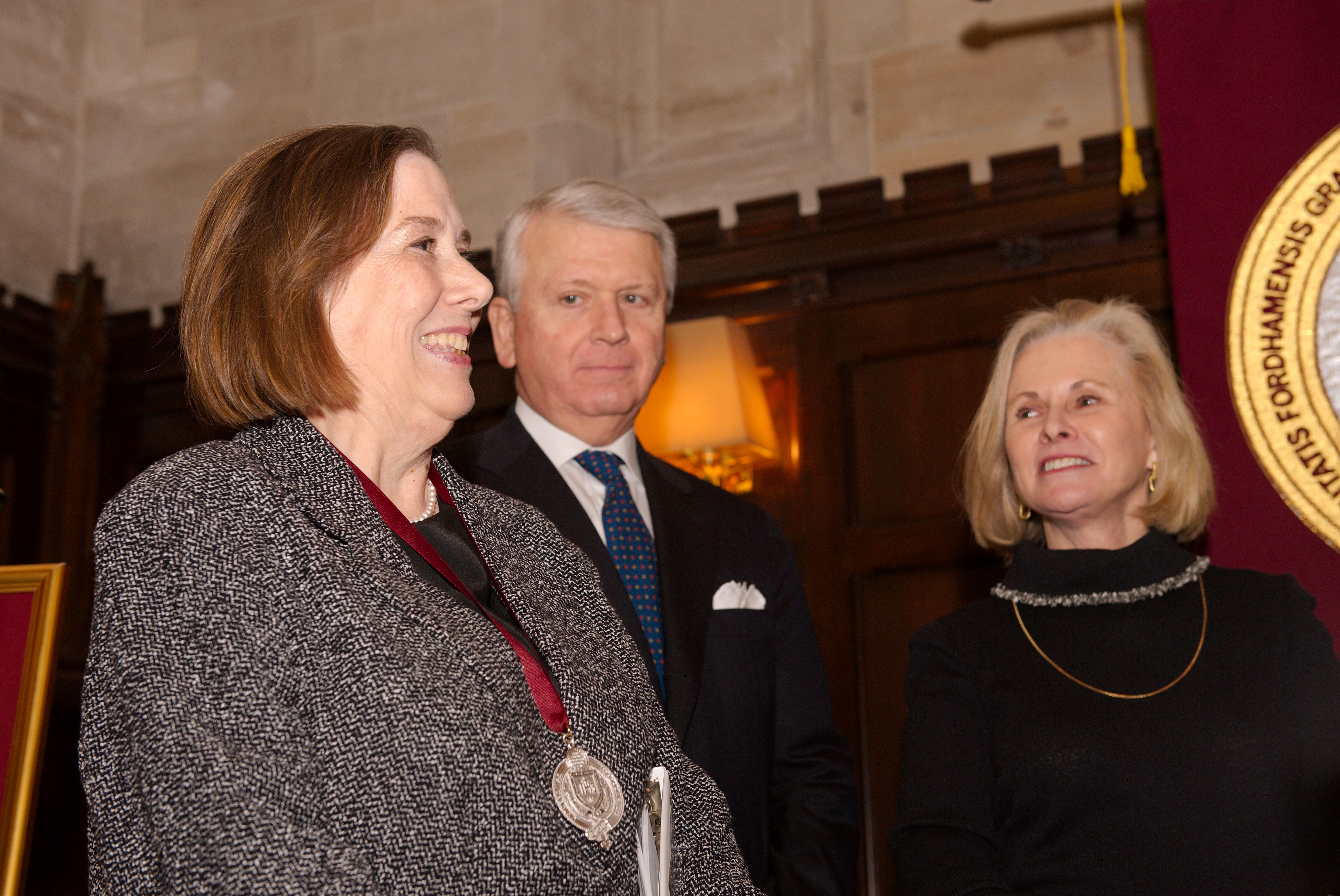
Andolsen is a feminist theologian and ethics scholar. From 2008 to 2019, she held several positions at Fordham, including the first James and Nancy Buckman Chair in Applied Christian Ethics, associate director of the Center for Ethics Education, and professor of theology. Andolsen previously taught at Monmouth University, Rutgers University, and Harvard Divinity School. She earned her Ph.D. in religion from Vanderbilt University, with a specialization in Christian ethics.
Andolsen’s research was ahead of her time, said Hinze. In her book Daughters of Jefferson, Daughters of Bootblacks: Racism and American Feminism (Mercer University Press, 1986), Andolsen wrote about how the women’s rights movement in the U.S. could have been different if more attention had been given to Black feminist perspectives. Andolsen also wrote The New Job Contract: Economic Justice in an Age of Insecurity (Wipf and Stock, 2009), the “first feminist analysis to connect religious understandings of economic justice with the issues facing both workers and the wider community,” according to the book publisher.
“Much of her work has brought together economics, business, feminism, Catholic ethics, and social thought in distinctive ways that were really pushing the field forward. She drew attention to many issues—including racism in the women’s movement, caring for the frail elderly, technology, and job insecurity—that were on the cusp of what was happening in society and in ethics,” Hinze said.
In a phone interview, Andolsen said the annual lectures were inspired by the work of her successor, Bryan Massingale, S.T.D., the current James and Nancy Buckman Chair in Applied Christian Ethics.
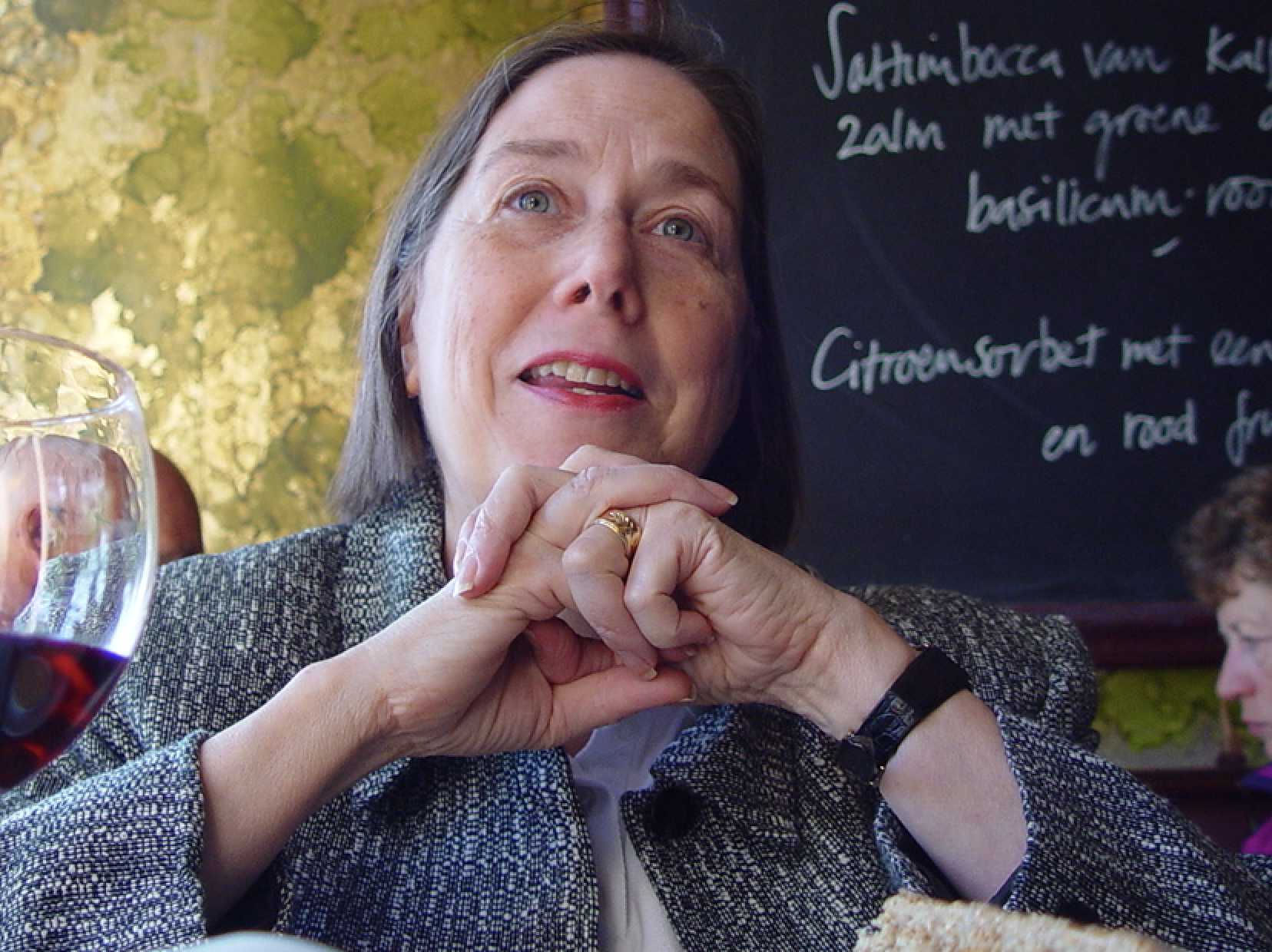
“His work made me aware that in our discipline, attention to racism as an issue has been surprisingly rare, given its social urgency. Not only is it rare, but also serious social analysis of racism appears only episodically in the official documents of the American Catholic bishops. Something will happen in society that focuses our attention on racism, and we’ll hear an idealistic statement from the bishops that denounces racism. But there won’t be any sustained attention,“ Andolsen said.
In response, she said she decided to support an annual event that would bring consistent attention to racism and theology—both at Fordham and beyond.
“Racism has frequently been called America’s greatest sin. I hope this lectureship gives insights to everyday people that help inform their conscientious stance on racism. It would also be wonderful if material from this lecture series came to the attention of the American Catholic bishops,” Andolsen said. “And I hope that this stimulates research among Fordham graduate students, faculty in the theology department, and other departments in the University. The scholarship available on questions of justice for African Americans and Native Americans is less than it should be in North America. There needs to be much more of it.”
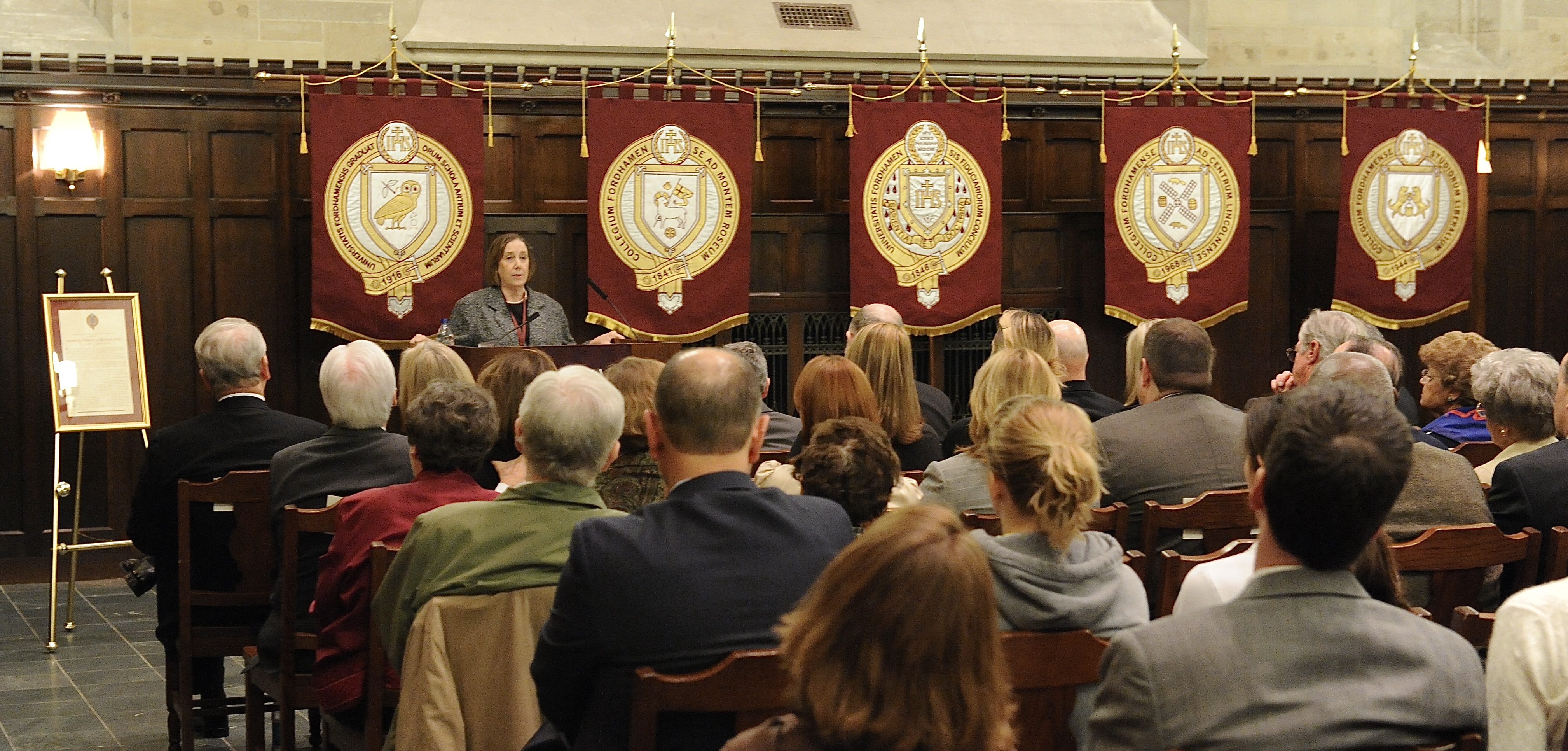
The event at the Lincoln Center campus brought Elizabeth Johnson, C.S.J., distinguished professor of theology, together in conversation with the prominent author James Martin, S.J.
During the buoyant conversation focused on her then-new book, Creation and the Cross: The Mercy of God for a Planet in Peril (her 11th), Father Martin credited her writings with changing his life. “Thank you,” he said, “for doing so much for making contemporary theology, feminist theology, and especially Christology so accessible to the general reader.”
Admission to the event was free, but attendees were asked to consider donating to a fund for women following in Sister Johnson’s footsteps.
Many were happy to oblige. Their gifts helped to grow the Elizabeth A. Johnson Endowed Scholarship Fund, which helps to bring more women’s voices and experiences into theological teaching and scholarship. With the field of theology—and particularly Catholic theology—dominated by men for so long, “having women involved in the whole field of thinking about religion is a great benefit,” said Christine Firer Hinze, Ph.D., theology department chair at the University.
Every year, the scholarship financially supports a woman who is finishing her doctoral dissertation, allowing her to focus full-time on her research. “When a student has a concentrated period of time to really dig in and get the dissertation done, not only does that produce a better dissertation, but it also produces more professional opportunities for the student,” said Patrick Hornbeck, D.Phil., theology professor and interim dean of the Graduate School of Arts and Sciences.
Providing such academic support is one goal of the University’s current fundraising campaign, Cura Personalis | For Every Fordham Student. Recent gifts have moved the scholarship toward providing a full year of financial support, but fundraising continues.
A Pathbreaking Career
Fordham’s graduate program in theology is highly selective, admitting only a few students per year and providing each with five years’ worth of financial support, Firer Hinze said. Students often need a sixth year to complete their dissertations, though, which is where the Elizabeth Johnson Scholarship comes in.
The scholarship was established in 2007 with a gift from Valerie Vincent, GSAS ’99, whom Sister Johnson had mentored. More than 100 other donors have contributed to it since then, often out of deep respect for her gifts as a teacher and her pathbreaking career.
A 27-year member of the Fordham faculty, Professor Johnson is internationally known for her work in Catholic systematic theology, feminist theology, ecological theology, and other fields. One of the most influential Catholic theologians in the world, she has received 15 honorary doctorates, many book prizes, and thousands of messages of thanks from believers inspired and heartened by her work.
In her particularly influential 2007 book, Quest for the Living God: Mapping Frontiers in the Theology of God, she examined how God is understood differently by men, women, the poor and oppressed, Holocaust victims, and people of a variety of faiths. Writing in The American Catholic, Joseph Cunneen called it “one of the most important and provocative books on theology to have appeared in the U.S. since Vatican II,” and religion students at universities everywhere commonly find it on the syllabus.
Her career has inspired women everywhere, Hornbeck said. In the decades following the Second Vatican Council, Sister Johnson and some of her colleagues “were the first women who really established themselves in the Catholic theological academy,” he said. “Beth, being one of the first women in that group, made it a special point throughout her career to nurture and to mentor and invest in the women theologians who were coming along behind her.”
He noted that she was the first woman to achieve tenure in the theology department at the Catholic University of America and one of the first women to serve as president of the Catholic Theological Society of America.
Inspired Teaching
Among those who attended Sister Johnson’s public talk in 2018 were Thomas M. Lamberti, FCRH ’52, and his wife, Eileen Lamberti, a former member of the Congregation of the Sisters of St. Joseph who met Sister Johnson in 1959, just after they both joined the religious order.
After getting reacquainted with Sister Johnson at a Fordham event a few decades ago, she and Thomas started attending more of her appearances. “My husband and I are great believers in her role in theology and promoting women, so Tom and I were very interested in supporting her,” she said.
Sister Johnson has won praise for presenting complex ideas in an engaging way and stimulating students’ interest and interaction in class. Eileen Lamberti sat in on one of Sister Johnson’s courses and saw that when a question was posed, “many, many hands went up”—the kind of strong response that shows a great teacher at work, she said.
Another supporter of the scholarship fund, Margaret Sharkey, PCS ’15, a former student of Sister Johnson’s, found her to be a “a natural storyteller” and a thoughtful listener.
Thomas Lamberti noted that as a retired labor lawyer, he found the scholarship’s equity aspect appealing. “Women theologians play a particular role, I think, of importance to the church, as they have a different view than men about many things,” he said.
In an interview, Sister Johnson said “it’s a whole new thing” to have women coming into the theology profession after nearly 2,000 years of men’s predominance.
“Those who contribute to this scholarship are supporting that—that women’s voice be heard in religious matters,” she said.
She said that St. Thomas Aquinas’ definition of women as “deficient men,” the governing idea in Catholicism and other traditions for centuries, needs to be countered with an “anthropology of equal giftedness” that opens theology to the experiences of women of color, the LGBTQ+ community, the poor, and others.
Diverse schools of thought, methods, and interpretations are springing up among women who are theologians, “so it’s very, very vibrant and lively,” she said. “It’s very difficult to keep up in the field now, because so much is being done on so many fronts.”
A Young Scholar Strikes Gold
Meg Stapleton Smith, the current recipient of the Elizabeth Johnson Scholarship, is in formation to be an Episcopal priest. She said the scholarship made a pivotal difference in her dissertation research focused on Mary Daly, the self-described “radical lesbian feminist” and key figure in modern feminist theology. It gave her the financial latitude to explore Daly’s archives at Smith College, where she found an unpublished manuscript—“the young scholar’s dream,” she said—that Daly wrote between the publication of her books The Church and the Second Sex in 1968 and Beyond God the Father in 1973.
The unfinished manuscript offers insight into Daly’s seemingly sudden decision to leave the Catholic Church, Smith said, and it also offers insight into other works of someone who is often dismissed by many Catholic thinkers because of her departure, Smith said. She has a contract with Cambridge University Press to publish the manuscript in an edited volume containing several feminist scholars’ reflections on it.
“This is somebody who really knew the tradition, and really knew it well—somebody who went to Switzerland to get a doctoral degree in theology when women weren’t even allowed to get Ph.D.s in theology in the United States,” she said.
“Mary Daly had this very robust understanding of the virtues,” Smith said. “One of the things that she said is the way that virtues operate, at least in Catholic moral theology, they tend to not break open our imagination. So she wanted people to understand the virtues as these tools that can help bring about societal transformation and personal liberation.”
In her dissertation, she draws upon Daly’s ideas in juxtaposing the virtue of courage with Catholic sexual ethics and seeing it as a way to counteract sexual shame. In the dissertation, she said, she argues that “when we act courageously, these are actually actions that bring us closer to God.”
Sister Johnson called it humbling and amazing to see the scholarship’s growth.
“It’s like a gift to your life that says, ‘Something that I was passionate about, and devoted all my energy to, is going to go forward in these students, these women who get the scholarship,’” she said. “It’s wonderful.”
To inquire about giving in support of the Elizabeth A. Johnson Endowed Scholarship Fund or another area of the University, please contact Michael Boyd, senior associate vice president for development and university relations, at 212-636-6525 or [email protected]. Learn more about Cura Personalis | For Every Fordham Student, our campaign to reinvest in every aspect of the Fordham student experience.
]]>“We’re in the midst of a global pandemic, one that’s combined with broad and outspoken activism in the area of racial justice,” said J. Patrick Hornbeck, Ph.D., chair of the Fordham theology department. “Both of these, and in particular, the intersection of them, have highlighted long-standing and systemic forms of inequality and inequity. Catholic colleges and universities, like all colleges and universities, are considering their plans for reopening right at the intersection of these twin crises.”
Hornbeck served as moderator for “Reopening Justly or Just Reopening? Catholic Social Teaching, Universities, and COVID-19,” a panel discussion organized by Fordham’s Department of Theology and the Francis and Ann Curran Center for American Catholic Studies The Zoom event focused on issues related to reopening, such as balancing the desire to open campuses with the need to keep people safe, the implications of students’ physical and mental health, and how the most vulnerable are affected by these decisions.
These questions are all interconnected, said Christine Firer Hinze, professor of theology and outgoing director of the Curran Center at Fordham, and can be addressed through the lens of Catholic social teaching, which focuses on matters of human dignity and common good in society. Catholic social teaching can serve as a “set of navigational markers” to help those who are making these decisions, she said.
“Decision-making around COVID … should be reality-based …and at the same time value-oriented,” she said. “We should respect the dignity and enhance the well-being of all our different stakeholders. We know this is not easy …. We are all interdependent. COVID has brought that home ridiculously clearly.”
Hornbeck said that all of these questions surrounding reopening require “ethical triage” because every option seems to “bring a potential for harm to someone in some way.”
Oftentimes, those who are the most affected by these decisions are the most vulnerable, said Craig Ford, assistant professor of theology and religious studies at St. Norbert’s College.
“The question now for me is who is being placed in vulnerable positions, and I think that’s something we really have to keep in mind,” he said. “We’re all vulnerable because of COVID-19, but what practices are we doing as an institution when we are asking people to be placed into vulnerable positions?”
Ford cited as an example the difference between faculty members who may have the option of teaching fully or partially online compared to staff members who work and live in residence halls. On the other hand, Ford also wondered about what could happen to students, particularly students of color and LGBTQ students, if they are sent back home.
“[What] if we pull people into our institution and are forced to send them home within four to five weeks because we have outbreaks—how are they going to continue to learn, how are they vulnerable again?” he asked. “Also our LGBTQ folks, where coming to campus might be good for them in some way but going home might be dangerous again, how do we take responsibility as an institution recognizing all these variables in people’s lives?”
Kate Ward, assistant professor of theology at Marquette University, said that it often feels like we’re in a situation where there “seems to be no good choices.” She highlighted the fact that if universities do fully reopen, there’s a chance people get sick, but fully staying closed could have unintended consequences.
“If we don’t open campus, some students will be home in less-than-safe situations. Some may come to harm there, others may not finish their degree, and other harms may occur—instability to our institutions, job loss of vulnerable workers,” she said.
Gerald Beyer, associate professor of Christian ethics at Villanova University, argued that at the very least, if universities do reopen, they have to do as much as possible to protect those who are most vulnerable by providing proper PPE and other safety measures.
Beyer also called on colleges to make sure they have the resources ready to help students in whatever form that takes, including making counseling resources available online and having campus ministers available to address students’ needs.
“Mental health, and I would add spiritual health, on Catholic campuses is crucial, these are crucial issues,” he said.
Both Ford and Ward called on Catholic universities and their staff and faculty members to think “more creatively” about online learning and how they can serve their communities during this time.
“What does it mean to generate content all the time? What does it mean to rethink a lot of what students want?” he asked.
Ford said in his classes, he’s used the online forum to have guest speakers come in to talk about their jobs and how they implement principles of social justice in their work.
“Teaching online is not like teaching face to face, but that means there are new opportunities,” he said.
]]>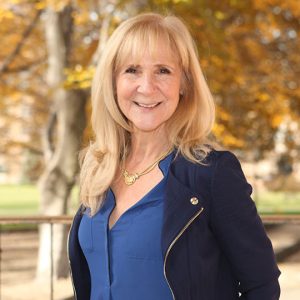
Celia Fisher, Ph.D., knew she was onto something in 1997 when she asked Joseph M. McShane S.J., president of Fordham who was then dean of Fordham College at Rose Hill, to fund a series of faculty seminars around the topic of ethics. In 1999, the success of those seminars led to the creation of the Center for Ethics Education.
Twenty years later, Fisher, the Marie Ward Doty University Chair in Ethics, says she’s still amazed at what the center has accomplished. The center, which received initial funding from the National Institute of Health and Fordham’s Graduate School of Arts and Sciences, currently oversees educational programs on the undergraduate, graduate, and post-graduate level. It has produced over 200 publications and has received a total of $11 million to conduct research supporting the rights and welfare of vulnerable populations. For the past eight years, it has also administered the HIV and Drug Abuse Prevention Research Ethics Training Institute.
Interdisciplinary From the Start
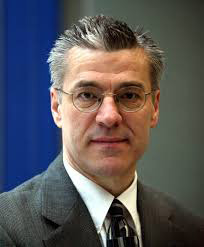
Fisher said one of the center’s greatest points of pride has been its interdisciplinary focus.
“The center’s success was built on the support, encouragement, and involvement of faculty of all the different schools and programs at Fordham,” she said.
“To be able to put all that together with the support of an interdisciplinary faculty, advisers, and teachers has been an incredibly wonderful experience.”
From the very beginning, Fisher, whose background is in psychology, has had two associate directors hailing from the theology and philosophy departments. Curran Center for Catholic Studies Director Christina Firer Hinze, Ph.D., represented theology when the Center for Ethics Education started and was followed by Barbara Andolsen. Currently, the position is held by theology professor Thomas Massaro, S.J.
Michael Baur, Ph.D., an associate professor of philosophy and adjunct professor of law, joined in 1999 as associate director and never left. It helps, he said, that he is “constitutionally built” to be interdisciplinary.
“For those who are predisposed to think beyond boundaries, the center provides a huge playground of full opportunities to think creatively about different disciplines,” he said.
“The center has made it really easy for me to start conversations with people I never would have spoken with about economics, psychology, biology, and neurosciences.”
In 1999, Baur recalled, the goal of the center was to create a space for crossing boundaries to address ethics and being open to whatever came along as a result. The interdisciplinary minor in bioethics, which was first offered to undergraduates in 2013, is an example of how the center has evolved to meet the needs of students.
“We already had the goodwill and the communications among different faculty. We didn’t have to reinvent the wheel,” he said.
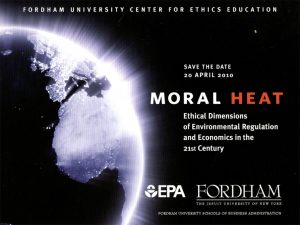
Debating Issues of the Times
When it comes to public programming, the center, which kicked off its 20th-anniversary celebration with a March 7 lecture titled “Ethics and the Digital Life,” has hosted events dedicated to nearly every thorny issue debated in the United States today.
Its first public event was an April 2000 workshop titled “The Ethics of Mentoring: Faculty and Student Obligations.” In a lecture four years later, Christian ethics professor Margaret Farley, Ph.D. weighed in on the use of human embryonic stem cells in research. The drug industry was the focus of a 2005 forum, “Bio-Pharmaceuticals and Public Trust,” and in 2012, the center co-sponsored “Money, Media and the Battle for Democracy’s Soul,” where former Senator Russ Feingold issued an ominous warning about the role of money in politics.
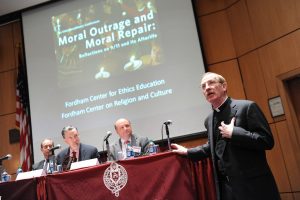
In 2013, a conference tackled the uncomfortable reality that the United States accounts for about 5 percent of the world’s population, but is home to nearly a quarter of the world’s prison population. Four years later, the center’s decision to co-sponsor “In Good Conscience: Human Rights in an Age of Terrorism, Violence and Limited Resources,” proved prescient, with the actual lecture coming two weeks after terrorist attacks in Brussels.
For Fisher, one of the most emotional events was “Moral Outrage and Moral Repair: Reflections on 9/11 and Its Afterlife,” a daylong conference co-organized with Fordham’s Center on Religion and Culture in April 2011.
“It was so moving. We had clerics from all different religions, we had philosophers talking about forgiveness, all sides of it. We had survivors and families of survivors. It was such an emotional experience,” she said.
A Flexible Master’s Program
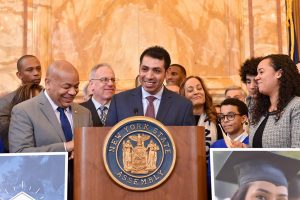
The center’s efforts are not confined to lectures and panels. In 2009, at the suggestion of former Graduate School of Arts and Sciences Dean Nancy Busch Rossnagel, Ph.D., the center began offering a Master of Arts in ethics and society under the direction of Adam Fried, Ph.D, GSAS’ 13, 17. It is now overseen by Rimah Jaber, GSAS’ 16.
Yohan Garcia, GSAS ’18, one of the program’s 57 alumni, recently accepted a position as national formation coordinator for the Archdiocese of Chicago’s Pastoral Migratoria (Migration Ministry) program.
A native of Mexico who moved to the Belmont neighborhood in 2003, Garcia earned an undergraduate degree in political science from Hunter College in 2015. In 2013, he attended a spiritual retreat and realized he wanted to incorporate his faith into his studies. As a Fordham master’s student, he took classes such as Natural Law (at the Law School); Race, Gender and the Media; and Introduction to Thomas Aquinas. Today, he’s able to apply what he learned in each of those courses to his work around immigration.
Although he’s only just started his job in Chicago, he’s already considering applying to Ph.D. programs.
“When it comes to issues like immigration, there’s no easy solution,” he said.
“We all have a different idea of the common good, but at the end of the day, as a society, we have to work toward a common goal that will benefit all of us. Listening is a great skill and a gift to have when it comes to this issue.”
HIV Research Training
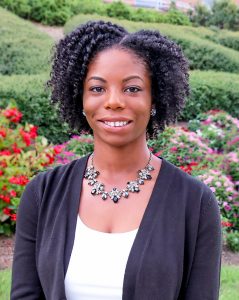
Faith Fletcher, Ph.D., an assistant professor of health behavior at the University of Alabama at Birmingham, completed training with the HIV and Drug Abuse Prevention Research Ethics Training Institute (RETI) in 2016. The institute, which is funded by the National Institute on Drug Abuse, has to date provided over 42 early career professionals in the social, behavioral, medical, and public health fields with an opportunity to gain research ethics training.
A native of Thibodaux, Louisiana, who was one of the first students to pursue a bioethics minor as an undergraduate at Tuskegee University, she has focused on the ethics of engagement with African American women living with HIV.
“Before coming to the research ethics training institute, I had training in both bioethics and public health, but I really struggled with finding the academic spaces, and even the language to combine these disciplinary areas,” Fletcher said.
“The institute is definitely the highlight of my academic career.”
Because she works with marginalized populations, Fletcher said her biggest challenge is avoiding situations that jeopardize the safety of them or researchers. It’s a real issue, as researchers engaged in qualitative research sometimes conduct interviews in vehicles, bars, and other unorthodox places to make sure the people they are interviewing are not further stigmatized.
“What I’ve learned from the training is we have to rely on research participants as research ethics experts, because they have these daily experiences with stigma, and are skilled at navigating and circumventing stigma. These are the individuals we have to go to as we’re designing our research ethics protocols,” she said.
It’s humbling work, and Fletcher said the women she’s interviewed have taught her much about resiliency.
“I’ve learned so much about the way that they’re able to navigate through society despite high levels of stigma and stress, and the way they’ve coped with it, risen above it, and not allowed it to define them,” she said.
“I’m thankful for them allowing me into their spaces, because not only does it enhance my research, but I’ve grown personally from their stories.”
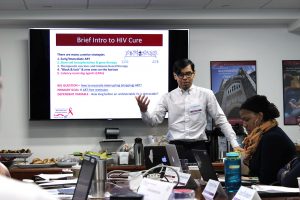
Protecting the rights and welfare of vulnerable populations has been a common theme running through the centers’ NIH-sponsored research. For instance, Fisher was the principal investigator on a 4-year series of studies designed to reduce the burden of HIV among young sexual and gender minority youth. The results of one of these studies were published in the journal AIDS and Behavior.
In 2014, based on a project supported by the Fordham’s HIV, Research Ethics Institute, Cynthia Pearson, Ph.D., was awarded a grant, along with Fisher, to adapt a culturally specific ethics training course for American Indian and Alaska Natives populations. Fisher also led a study in 2006 to assess and develop procedures to enhance the capacity of adults with mild and moderate mental retardation to provide informed consent for therapeutic research; the results were published in the American Journal of Psychiatry.
A Shared Dedication to Social Justice
Going forward, Fisher said she wants to expand the involvement of the faculty and alumni in center programming, recruit more international students, and establish a research center on health disparities among marginalized populations.
Since its beginnings, the Center has been grounded in Fordham University’s commitment to intellectual excellence, human dignity, and the common good. The success of the center, she said, is due in no small part to the breadth and depth of Fordham’s faculty dedication to these ideals.
“Faculty, students, and administrators share this dedication to social justice and helping others that just implicitly supports what we’re doing. So, when we reach out to faculty, they are already providing students with the tools for critical and compassionate engagement in creating a just world,” she said.
“They may not do work in ethics per se, but the way they think, because they’re at Fordham, they are committed to caring for the least among us.”
]]>A wake will take place on Tuesday, Aug. 4 from 2 to 4 p.m. and 7 to 9 p.m. at Dorsey Funeral Home, 14 Emwilton Place, Ossining, NY.
A funeral service will be held Aug. 5 at 11:30 a.m. at the Scarborough Presbyterian Church in Scarborough, NY. A reception will follow at Sleepy Hollow Country Club.
“John Curran was one of my heroes,” said Joseph M. McShane, SJ, president of Fordham. “He was one of the most exemplary of Fordham’s graduates: brilliant, kind, witty, intellectually curious, generous and filled with faith. It is no wonder, therefore, that he touched and inspired all who met him. My heart goes out to his family today. I know the Fordham family joins me in keeping John and his loved ones in our prayers.”
Curran and his wife, Constance, endowed the center in 2004, when it was just a “phone and a desk on the third floor of Keating Hall,” said the center’s founder, Mark S. Massa, SJ, the former Karl Rahner Chair in Theology.
“Ten years ago no one could have predicted the success and the growth of the Curran Center,” said Father Massa, who is now professor of church history and dean of the School of Theology and Ministry at Boston College. “It takes a visionary group of people to invest in a future that they can’t exactly see.”
Born and raised in the Bronx, John Curran graduated from Fordham’s School of Pharmacy in 1966 and received a doctorate in pharmaceutical economics from the University of Pittsburgh in 1971.
His longtime career in pharmaceuticals included work in public policy research with Pfizer, Inc. and in drug analysis with G.A. Saxton, Wood Gundy, Inc., Dean Witter Reynolds, and L.F. Rothschild. He began his own hedge fund, Curran Capital Management, in 1987, from which he retired in 2002.
Father Massa had established a center for Catholic study at Fordham in 2001, which opened one week after the tragedies of Sept. 11. It remained a small program until the Currans, inspired by their close friendship with Father Massa, became its benefactors and named it in honor of John Curran’s parents.
Since then, the Currans have been much more than benefactors and patrons to the Curran Center, said current director Christine Firer Hinze, PhD.“To me, to our staff and faculty, and to our students over the years, John has been been our inspiration, our most confident and generous supporter, our exuberant cheerleader, and a cherished mentor and friend,” said Hinze, a professor of theology. “He made everyone who was privileged to know him feel capable of great things.”
The center, which celebrated its 10th anniversary in May, has grown to become a premier hub of Catholic studies. It offers numerous lectures and public conferences that explore diverse topics in Catholicism, including Catholic education, Catholic literature, black Catholic culture, and Latino/a spirituality.
“He loved Fordham and loved his church—he dearly wanted both to thrive, and his support of the center embodied these loves,” Hinze said. “We will miss him terribly, and remember him always.”
In addition to his wife of 47 years, Curran leaves a daughter, Meredith Rauhut; son Sean Curran; grandchildren Gavin and Kaelyn Rauhut; sister, Ann Mullan; and ten nieces and nephews.
]]>On Thursday, May 21, the Curran Center will celebrate the 10th anniversary of its naming with a gala honoring its benefactors, John P. Curran, PhD, PHA ’66, and Constance A. Curran. The couple will be awarded with Fordham’s prestigious Presidential Medal.
The Currans were inspired to endow the center in 2004 through their close friendship with Mark S. Massa, SJ, Fordham’s former Karl Rahner Chair in Theology. Father Massa first founded a center for Catholic study at Fordham, which opened one week after the tragedies of 9/11.
Father Massa, who is now professor of church history and dean of the School of Theology and Ministry at Boston College, had said at that time, “Now it’s more important than ever that we have a place where reasoned discourse about religion can take place.”
Through the generous support of the Currans and other donors, the center has continued to enable that discourse by offering an undergraduate concentration in American Catholic studies, faculty programs, and numerous lectures and conferences open to the public.
Reflecting on their decision to become benefactors, Constance Curran remarked, “John and I were both excited about the opportunity to help grow and expand the center’s programs.”
“For John, being able to name the center after his parents, Francis and Ann Curran, makes it a very special place.”
Student concentrators at the Curran Center engage in a rigorous program of inter-disciplinary courses and participate in community service. As well, they receive mentoring for post-graduation and scholarships toward tuition.
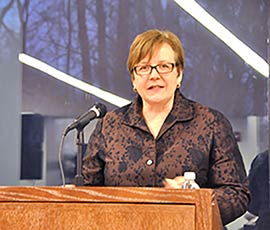
Photo by Patrick Verel
Father Massa envisioned a program that would help students carry their Catholic tradition into the world. “We were not concerned so much with getting people who were going to be ordained … although we certainly have that, but also we were interested in forming very talented undergraduates who were going to go on to be lawyers or doctors or professors, training them for positions of Catholic leadership,” he said.
Constance Curran said that meeting the graduating seniors has been one of the most meaningful experiences for her and John. “Year after year many of them tell us how being a concentrator at CACS has made them realize the importance of faith and social involvement in one’s life and work – it’s a partnership,” she said.
Christine Firer Hinze, PhD, professor of theology and the current director, sees the center as a “wonderful platform” for cultivating understanding and appreciation of “all things Catholic, whether it’s Catholic thought, Catholic practice, Catholic issues in society, Catholic art, Catholic literature—all the different facets of this tradition, which are so interesting, particularly as they live in the United States.”
The center’s public conferences and lectures reflect the diverse aspects of Catholicism, exploring topics such as Catholic education, the Catholic literary imagination, black Catholic culture, and Latino/a spirituality. For the past 10 years, the center has also hosted the Rita Cassella Jones Lecture on Women and Catholicism.
The center is now in the midst of a three-year series examining Catholic social teaching and the economy, which will culminate in a major conference in 2016, marking the 125th anniversary of the first issuing of a papal social encyclical in 1891. For this series, the center is also inaugurating its first Visiting Chair in American Catholic Studies.
Contemplating the Curran Center’s accomplishments and its continued importance, Hinze stated, “I think we’re in a moment historically where we badly need places that allow people to think and to dialog intelligently and compassionately about matters of faith as they intersect with culture, politics, the arts, society, and so forth.”
“At a Catholic university, and at a Jesuit university which has this long tradition of seeking the intersections of faith and the larger culture or faith and reason . . . , we’re really well situated to fill a need that’s out there for discourse that is informative but also very engaging and inter-disciplinary—something that helps people think and talk about these issues today.”
–Nina Heidig
]]>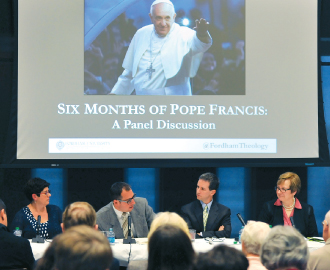
Photo by Dana Maxson
In February, Pope Benedict XVI shocked the world by announcing his decision to resign from the papacy— becoming the first pope to do so in nearly six centuries.
A month later, Argentinian Cardinal Jorge Mario Bergoglio was elected as Benedict’s successor, launching a papacy that in just six months has already been the talk of religious and secular communities around the world.
On Sept. 9, a panel of Fordham theologians gathered on the Lincoln Center campus to discuss how the newly elected Pope Francis has handled the first six months of his papacy. Moderated by Terrence Tilley, Ph.D., the Avery Cardinal Dulles, S.J., Professor of Catholic Theology, the panel featured:
• Rachel Zoll, lead religion reporter for the Associated Press;
• Christine Firer Hinze, Ph.D., professor of theology and director of the Francis and Ann Curran Center for American Catholic Studies;
• Michael Lee, Ph.D., associate professor of theology and president of the Academy of Catholic Hispanic Theologians of the United States; and
• Michael Peppard, Ph.D., assistant professor of theology and blog contributor for Commonweal magazine.
As the first South American and the first Jesuit to ascend to the papacy, Pope Francis represented a novelty for the church from the start.
The six months since his election have been no less unconventional.
On the flight returning from World Youth Day in July, he told reporters that although Catholic teaching is clear on the issue of homosexuality, “Who am I to judge a gay person of goodwill who seeks the Lord?” Recently, he personally phoned an Italian woman who wrote that she was concerned her unborn child would not be baptized because she was unmarried. He told her that if she received any pushback, he would baptize the child himself.
“This pope has an improvisational and simple style—something that is keeping the Vatican on its toes,” Peppard said. “He has a preference for simple vestments, simple shoes, for walking or riding the bus, and paying his own hotel bill after the conclave.
“And it’s still quite amazing that the pope does not live in the papal apartment. It’s as if we had a president who got elected and said there aren’t going to be any more inaugural balls.”
This new style has appealed to Catholics and non-Catholics alike, who, Hinze said, feel more welcomed by a pope who not only acknowledges but also understands their everyday struggles.
“This pope is a pastoral genius who speaks of a God who is close, who accompanies people on their daily struggles, who assures people that they are not alone,” she said. “It’s a fleshy, shoulder-rubbing, embodied way of enacting discipleship.”
Where Pope Francis’ on-the-ground papacy might appear radical, Lee said, is in his expectation that other Catholic leaders follow suit. At a meeting in June with leaders of the Conference of Latin American and Caribbean Confederation of Religious, the pope told participants to not be afraid of running risks and trying new approaches.
He brought the same message to World Youth Day this July in Rio de Janeiro, telling the 3 million gathered, “Become protagonists of change, work for a better world.”
“He has said, ‘I prefer a church that makes mistakes because it did something to one that sickens because it remains shut in,’” Lee cited. “It’s a remarkable set of comments.”
Though the pope’s election had galvanized the media from the start, sparking questions such as whether the departing and arriving popes would both live in Vatican City, interest within the media has not waned. Outlets ranging from the Wall Street Journal to BBC International have continued to call on Fordham theologians to interpret what this Everyman pope will mean for the Catholic Church.
“He’s a great story,” Zoll said. “He’s constantly doing interesting things. You can see that there’s a popular interest in the pope that goes so far beyond what typically interests people about religion.”
Tilley told the audience to pay attention as the pope appoints cardinals and bishops in the coming months and years, because his choices will set the tone for future church leadership.
In addition, papal encyclicals will contain hints about the future of the papacy, because popes often use these documents to qualify church teachings.
“If you want to know what he’s thinking, look at what’s being omitted and what’s being added in these texts,” Tilley said.
The event was hosted by the Department of Theology, in association with the Francis and Ann Curran Center for American Catholic Studies and the Center on Religion and Culture.
]]>And since the 1965 close of the Vatican II, women religious have embraced the changing times, said panelists of “Call and Response: How American Catholic Sisters Shaped the Church Since Vatican II.”
The discussion, which was sponsored by the Center on Religion and Culture, filled Pope Auditorium on Dec. 11. Moderated by Christine Firer Hinze, Ph.D., professor of theology, the panel featured:
• Doris Gottemoeller, R.S.M., GSAS ’76, vice president of Catholic Health Partners and former president of the Sisters of Mercy of the Americas;
• Mary Johnson, S.N.D.deN., distinguished professor of religious studies and sociology at Trinity Washington University;
• Maria Cimperman, R.S.C.J., associate professor of theology and social ethics at Catholic Theological Union;
• Maria Theotokos Adams, S.S.V.M., director of studies at Immaculate Conception Province, Servants of the Lord and the Virgin of Matará; and
• Miriam Ukeritis, C.S.J., psychologist and CEO of Southdown Institute.
Sister Gottemoeller said that the 1965 Decree on the Adaptation and Renewal of Religious Life mandated comprehensive change in accordance with the needs of the era.
The decree required that sisters’ living, praying, and working must adapt to the physical and psychological conditions of contemporary religious communities, cultural requirements, and social and economic circumstances. Religious communities were to adjust their governance accordingly.
“Can you grasp the scope of that?” Sister Gottemoeller said. “It [affected]congregations with hundreds of years of history. We were to go back to the source and update everything… And this wasn’t an activity for the leaders. This was an activity for every member.”
Changes that followed, such as sisters seeking professional credentials, driving cars, and wearing modified habits or contemporary clothing, were radical, but certainly not rebellious.
“People suggest that we were in a state of defiance,” she said, “But as we look back, what can’t be said too often was that change was an act of obedience to the church.”
Sister Johnson, who attended Catholic primary school, secondary school, and college throughout the 1960s and 1970s, witnessed changes in her teachers, which was more than just “change in external habit.”
“I saw them cross all kinds of lines: Ethnic lines, going all around the parishes of the city. Racial lines, becoming involved in civil rights initiatives. Ideological lines, becoming engaged with the anti-war and the social movements. And also class lines. They could work with well-to-do people on a fundraiser and then [visit]a homeless shelter in the evening. And they did it with aplomb.”
Nor did they balk at crossing educational lines, Sister Cimperman echoed. She told the story of Sister Madeleva Wolff, who in 1942 was appointed by the National Catholic Educational Association to devise a solution to the shortage of theology teachers.
Sister Wolff began by asking graduate theology programs to admit women religious and lay people, but every school refused. Faced with a seemingly dead end, she announced that St. Mary’s College, where she was president, would set up a program of its own. By the time the school closed 25 years later, it had granted 76 doctoral and 35 master’s degrees in theology to sisters and the laity.
“This is where women religious tend to come in,” Sister Cimperman said. “All options are gone, and yet they have hope and see beyond.”
The panel discussed the “freedom and constraint” of the vows of poverty, chastity, and obedience. According to Sister Ukeritis, the vows do not hinder women religious, but rather, help them to confront natural human inclinations.
“The vows give us a way of dealing with those very powerful human drives, needs, and issues,” she said. “They give us a way of addressing them, of being aware of them, and communally asking how do we deal with money, sex, and power in ways that are life-giving?”
The panel also addressed the so-called vocation crisis—the dearth of women entering religious life. Currently, only 1,200 women in the nation are in the formation period.
“Being Catholic isn’t taken for granted anymore,” said Sister Adams, who entered religious life in 2001. “We’re not a generation that’s growing up in the Catholic-only environments of [parochial]school.”
“This is an issue of the whole church,” Sister Johnson said. “This has tremendous implications for [its]future. In the tasks that make up parish and diocesan life, much of the labor is done by women. If these projections hold, then years from now we will see a very diminished labor pool in every organization of the church’s life. It will be a very different church in the United States.”
The event was co-sponsored by the Francis and Ann Curran Center for American Catholic Studies.
]]> With the world economy mired in recession, the idea of being poor has become a real possibility for many people. This makes it a perfect time to examine key concepts of Catholic social teaching, according to a panel of experts.
With the world economy mired in recession, the idea of being poor has become a real possibility for many people. This makes it a perfect time to examine key concepts of Catholic social teaching, according to a panel of experts.
“Poverty and the Common Good: New Ways of Understanding Collective Responsibility,” a symposium held on April 2 at Fordham’s Westchester campus, brought together panelists from the fields of law, business, social work and theology.
Moderator Peter Steinfels, co-director of the Fordham Center on Religion and Culture, opened the evening with an observation that the church’s position on the subject of private property has evolved over time.
“While Catholic social teaching has always defended private property, it has not, surprisingly, seen private property in a communal fashion, as entailing social responsibilities,” he said. “It has come, eventually, to speak of the universal destination of goods, and a preferential option for the poor, and most frequently, about solidarity.”
Kevin Jackson, Ph.D., professor of business ethics, said when it comes to charitable giving by businesses, two opposing schools of thought have emerged.
One side says businessmen such as Bill Gates don’t do nearly enough to help the poor, relative to their own wealth. Others believe that Microsoft has done an enormous amount of good simply through its existence.
Also, when a company decides that it should give money to a needy cause, the “how” and the “who” are fraught with great questions, Jackson said.
“If you’ve ever been in the position to give to somebody in your family that is in need, how often has it been that the person will say, ‘Let’s just treat this as a loan.’ In other words, they don’t want it to be an outright gift; they’d like to pay you back later on,” he said. “I believe that’s because they want to preserve some element of their dignity. Making a loan is not as generous as making a gift. It means less sacrifice for the giver, but it preserves the dignity of the recipient.”
Christine Firer Hinze, Ph.D., said there is a certain bit of irony in the fact that for all the talk about the current economic crisis, the word poverty is never uttered.
“It’s interesting to me that Barack Obama’s presidential campaign and current policy rhetoric is striking for its studied avoidance of the word poverty or poor. Everybody is in the middle class,” she said.
“His strategy is well-intentioned. He wants to help the citizens in our country back into a feeling of the common good by saying, ‘We’re all suffering here. We’re all worried. Let’s cast a net so we can all get help, including the poor.’”
The danger in this approach is that people who consider themselves middle class may only think of people their own income bracket as those whom they should work to help, she said.
Speakers also included Amy Uelmen, director of the Institute on Religion, Law and Lawyer’s Work at Fordham Law School, and George Horton, director of social and community development for Archdiocese of New York Catholic Charities.
The symposium was sponsored by the Fordham Graduate School of Social Service, the Bertram M. Beck Institute of Religion and Poverty, Office of Mission and Ministry at Fordham and the Westchester campus Office of Campus Ministry.
]]>